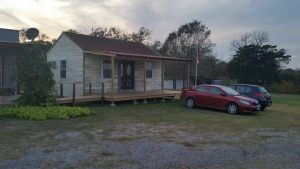Rising in the Heavenly Tabernacle
 The discussion over the resurrection body continues as we study Rising in the Heavenly Tabernacle. There are countless posts in the Preterist groups and pages on Facebook and other Social Media sites.
The discussion over the resurrection body continues as we study Rising in the Heavenly Tabernacle. There are countless posts in the Preterist groups and pages on Facebook and other Social Media sites.
The resolution to this debate centers around three things, namely context, historical Old Testament and NT references, careful and consistent interpretation and temporal indicators or time references.
What is the Context of 2 Corinthians 5?
Part of the problem in determining the context of 2 Corinthians 5 is viewing the first ten verses of the chapter as the context. This is misleading.
The full context begins in chapter 3 and does not end until chapter 7:1. Within these chapters we have the “foreground” of the Old Testament passages which lay in the background.
We suggest the background context of 2 Corinthians 3-7:1 is Ezekiel chapters 36-37. Here are themes from those chapters seen in our present context.
Themes From Ezekiel Chapters 36-37 Found in 2 Corinthians
- The new covenant of 2 Corinthians 3:7-12 and the covenant of peace of Ezekiel 37:26.
- The indwelling and transforming power of the Holy Spirit, 2 Corinthians 18 and Ezekiel 36:27; 37:14.
- The resurrection of the body 2 Corinthians 5 and Ezekiel 37:1-14.
- The restoration of Israel to the land 2 Corinthians 6:1-2 and Ezekiel 37:15-22; Isaiah 49:8-12.
- The new tabernacle of God set in their midst, 2 Corinthians 5:1-10 and 6:14-18.
- The new creation of 2 Corinthians 5:16-17 and Ezekiel 36:25-26.
- The new birth and cleansing of Israel’s filthiness and idolatries 2 Corinthians 7:1 and Ezekiel 36:17, 25, 33.
- The new Davidic Messiah King 2 Corinthians 3:17 and Ezekiel 37:24.
- The Day of Atonement (forgiveness of sin) 2 Corinthians 5:21 and Ezekiel 37:23.
- Salvation of the nations 2 Corinthians 4:10-12 and Ezekiel 37:28.
By studying the above themes carefully, the background of 2 Corinthians can be clearly seen.
Rising in the Heavenly Tabernacle and the Kingdom of God
The key to understanding the heavenly house of 2 Corinthians 5 is the phrase “house not made with hands”. In the Old Testament we find this phrase in Daniel in the form, “without hands”. It is a reference to the kingdom of God.
The kingdom is the “stone” of Nebuchadnezzar’s dream that crushed the image. Daniel interpreted the stone to be the kingdom of God. It is the house not made with hands.
As a “kingdom temple” (Zechariah 6:12-13; Psalm 110:4), it is the resurrection body of 2 Corinthians 5:1f. The video goes into much more detail on understanding this concept.
It is the same “spiritual body” of 1 Corinthians 15:50 spoken of as the inheritance. “Now this I say that flesh and blood shall not inherit the kingdom of God; neither does corruption inherit incorruption.”
The kingdom of God is another name for the resurrection. It is the heavenly house not made with hands. It is the incorruptible inheritance.
Rising in the Heavenly Tabernacle Comparisons of the Inheritance
We have long understood the principle of logic which states, if A=B and B=C, then A=C. To illustrate the point, if the inheritance = the kingdom of God, and the inheritance = incorruption, then the kingdom of God = incorruption. Again, if the spiritual body = incorruption and the kingdom of God = incorruption, then the spiritual body = the kingdom of God. This is another way of saying things equal to the same thing are equal to one another.
But let’s take it one step further. The following are all considered as the inheritance
- The earth or land (Matt. 5:5)
- Everlasting life, Matt. 19:29; Mk. 10:17; Lk. 10:25; 18:18
- The kingdom of God, Matt. 25:34; 1 Cor. 6:9; 1 Cor. 15:50
- God, Romans 8:17; Gal. 4:7, 30
- Salvation, Heb. 1:4
- The promises, Heb. 6:12
- A blessing, 1 Pet. 3:9
- All Things, Rev. 21:7
Since all the above are eschatological blessings fo the end times, they all refer to and equal the same thing. Not once is an individual body indicated. They all refer to the corporate salvation which is in Christ Jesus. Rising in the heavenly tabernacle means to inherit the salvation which is in Christ.
Source: William Bell
